Nasreddin Dinet: French artist who converted to Islam
Categories: Africa | Culture | Exhibition
By Pictolic https://pictolic.com/article/nasreddin-dinet-french-artist-who-converted-to-islam.htmlIn the 19th century, traditional European art depicted the countries of Africa, the Middle East, and Asia as an exotic world populated by outlandish people with strange clothing and customs. Orientalism had a pronounced colonial tinge, which significantly devalued the works of the most talented artists and writers. But there were also pleasant exceptions, such as Nasruddin Dineh. This French painter loved the East so much that he became a part of it.
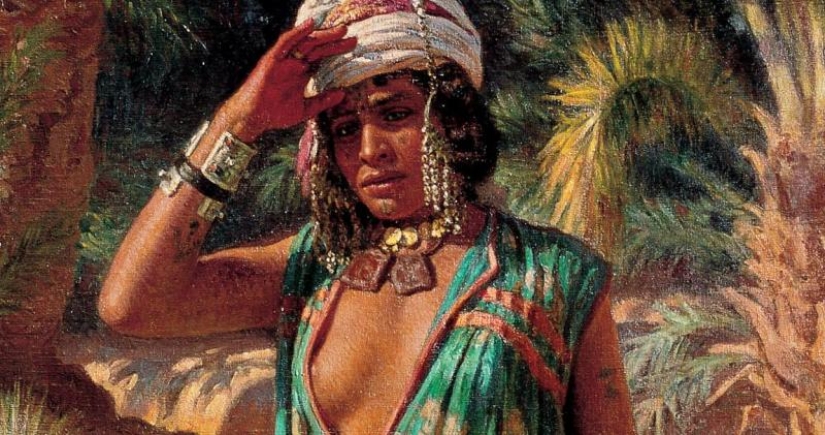
Alphonse Etienne Dinet was born on March 28, 1861 in the family of the Paris judge Philippe Leon Dinet and Marie Odile Boucher. Drawing from an early age fascinated the boy, so after graduating from the general Lyceum of Henry IV in 1881, he did not hesitate to enter the National High School of Fine Arts.
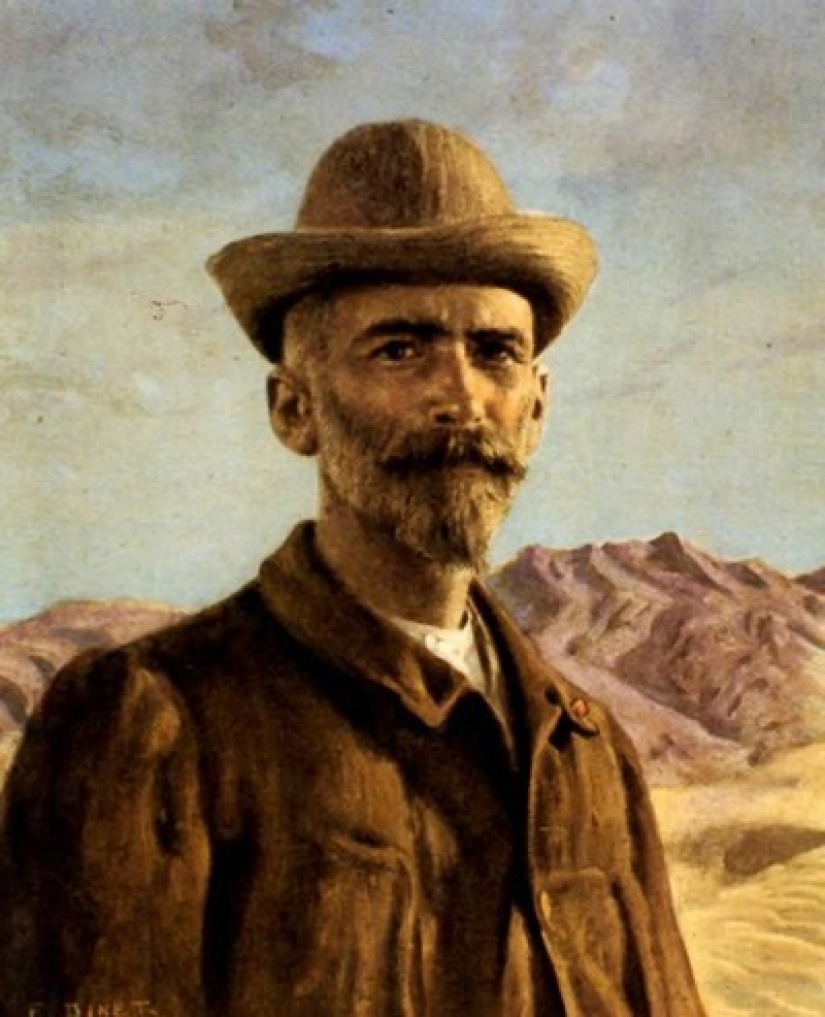
As a student, Dinet took lessons from famous Parisian painters such as Victor Galland, William Bouguereau, and Tony Robert-Fleury. The first success was not long in coming and the paintings of the young gifted guy were shown to the public at the French Salon of Arts – the most prestigious exhibition in the country.
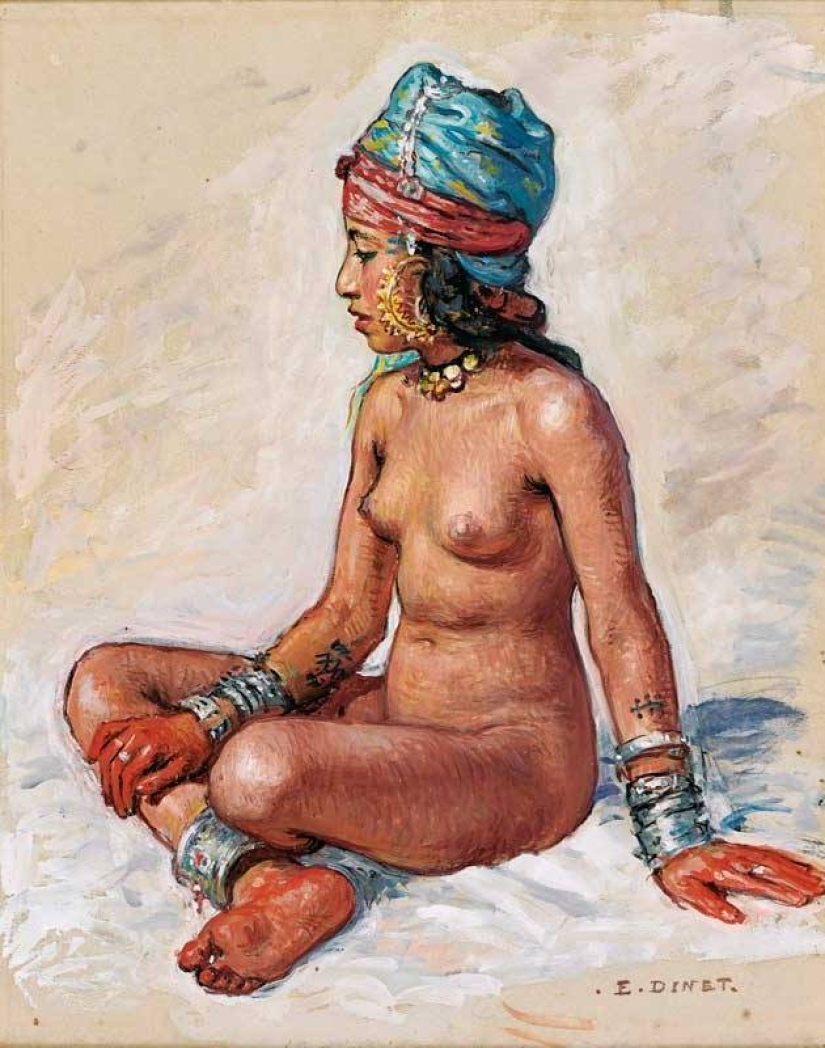
In 1884, Alphonse Dinet first came to North Africa and immediately "fell ill" with this unusual land. The 22-year-old artist visited the town of Bou Saada in Algeria, which at the time was a colony of France and was so fascinated by the beauty of the scenery and the local people that he firmly chose the direction of art.
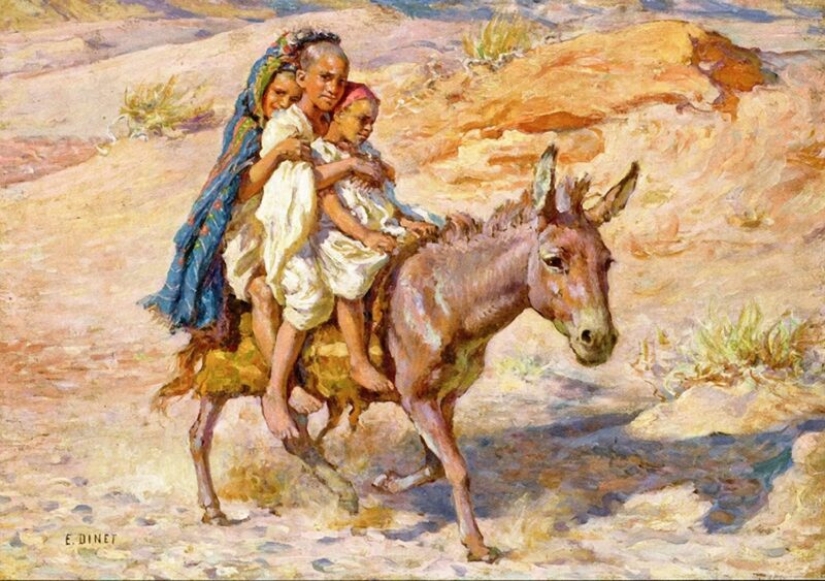
For the next 45 years of his life, Dinet painted as an orientalist, traveling through Africa and the Middle East and returning to France only when necessary.
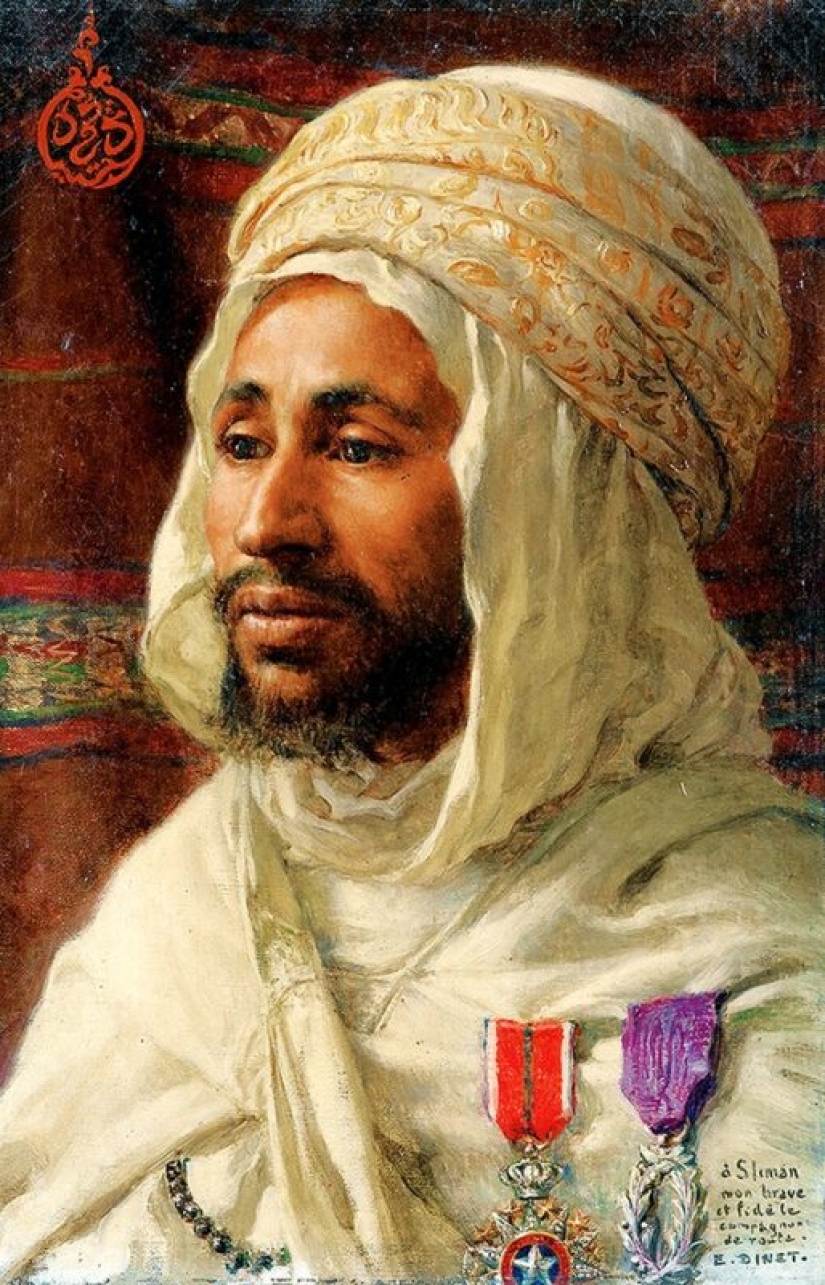
In 1888, Dinet learned Arabic and met Slimane Ben Ibrahim, who was first the artist's guide, and then became his best friend for life. In 1903, the French painter decided to settle in Bou Saade and bought a house there. Biographer Dine Kudir Bencico wrote:
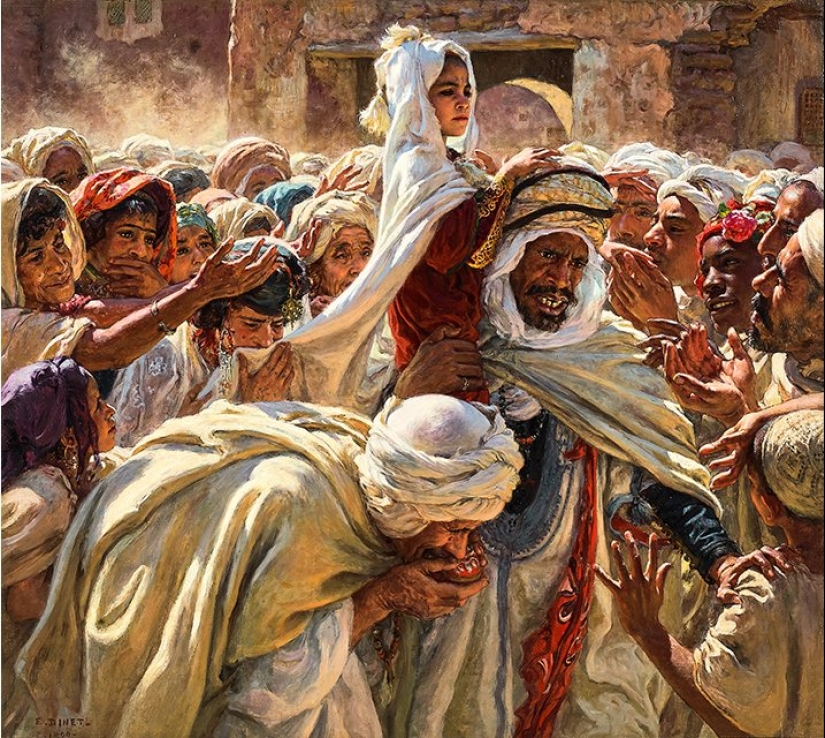
Dinet did not want to portray Arabs and Berbers as exotic characters, as was customary in his time. He wrote them as they are in everyday life and tried to understand their culture and everyday life. Living permanently in Bou Saad and communicating with the locals, the artist made enemies in the colonial French administration. He repeatedly came into open conflict with the governor and officials, defending the rights of residents of the city.
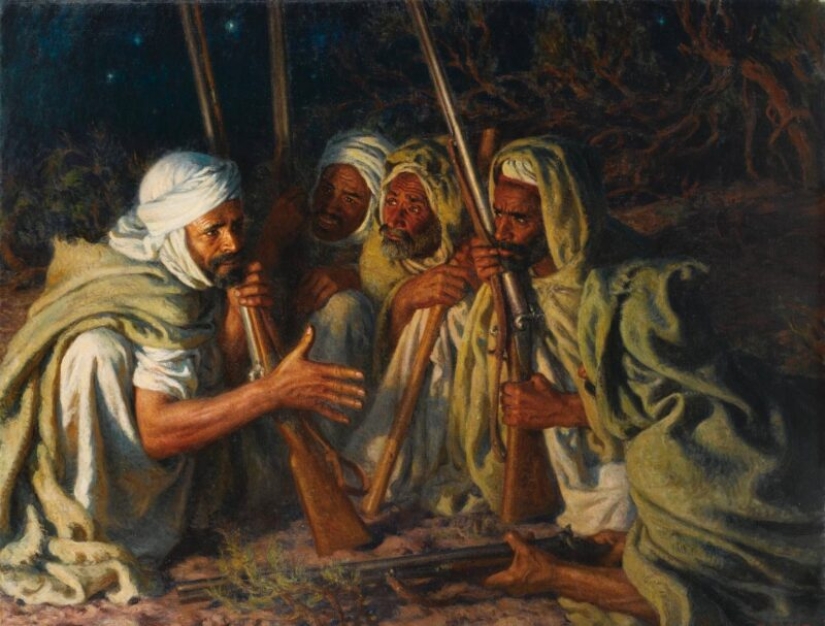
In 1908, Alphonse Dinet made an important decision for himself-to convert to Islam. The Frenchman was very serious about converting to the new faith – he studied the Koran as well as most Muslims and could even engage in theological discussions. In 1913, Dineh officially announced the completion of the transition and that his name was now Nasruddin Dineh.
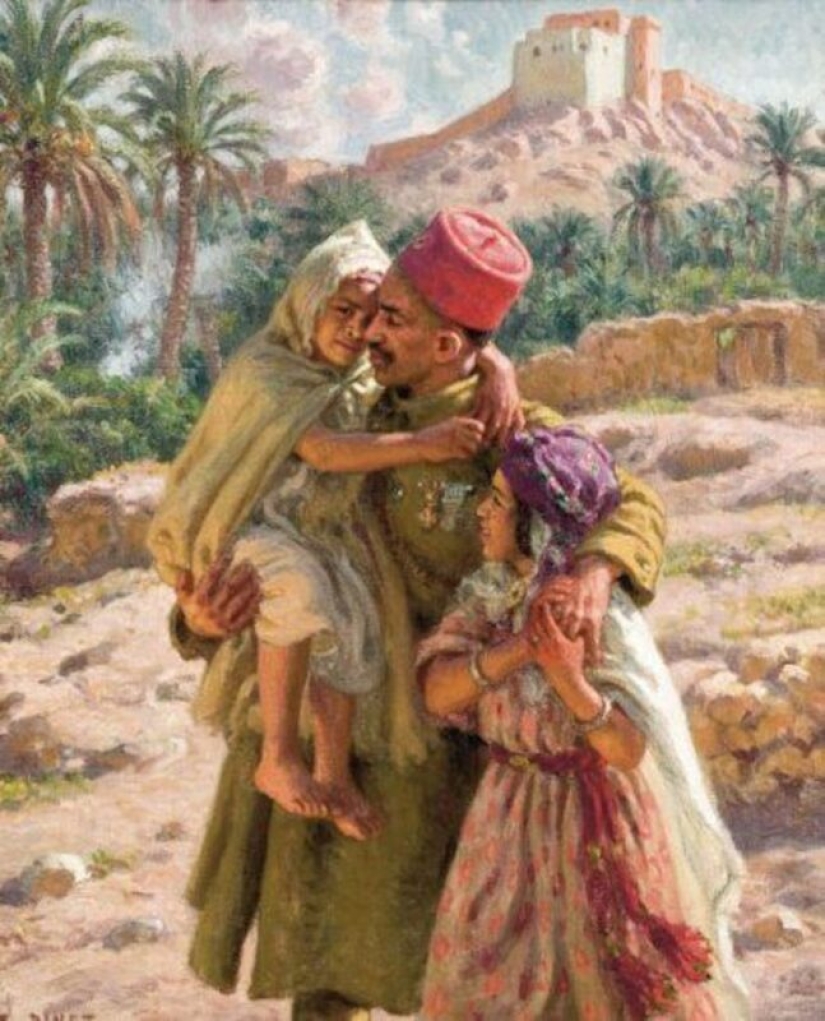
Parisian friends of the artist were shocked by his decision. Many strazu disowned him, and those who remained sympathetic avoided mentioning his name in their midst. Gallery owners excluded Dinet's paintings from all exhibitions, depriving one of the main sources of income.
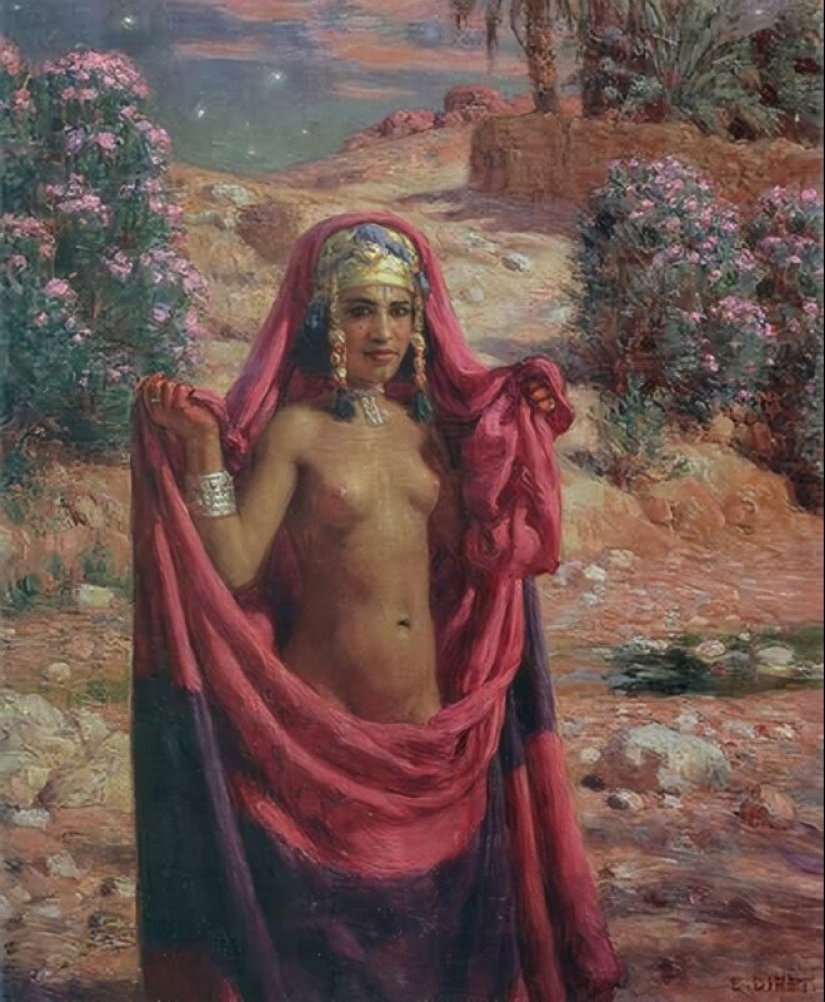
But Nasruddin Dina no longer cared – he became a resident of the Sahara, part of the people to whom he dedicated his best works. In 1929, the painter made the Hajj, visiting Mecca with his wife. The journey undermined the frail health of an elderly man and less than a year later, on January 12, 1930, Dinet died at his home in Paris, surrounded by close people.
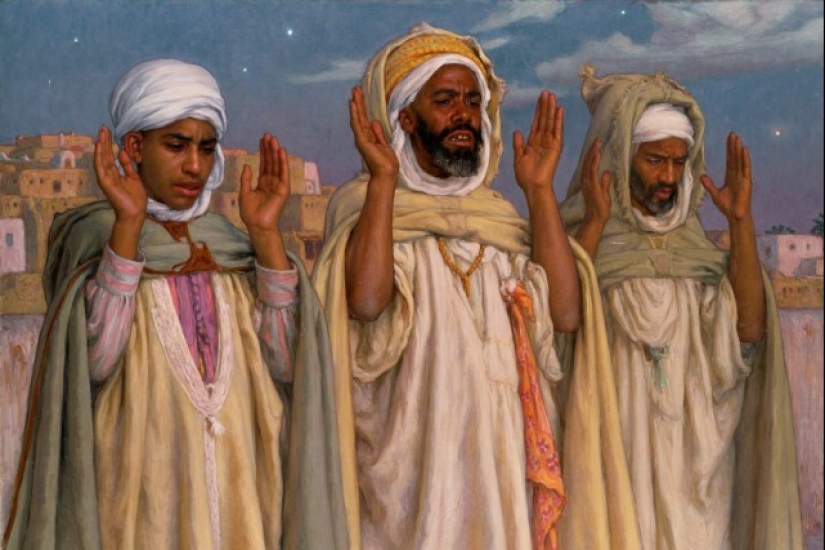
According to Dineh's will, his body was embalmed and transported to Bou Saada for burial in a Muslim cemetery. More than 5,000 people attended Nasruddin Dineh's funeral, many of whom had to travel hundreds of kilometers across the desert. The farewell speech over the Artist's grave was delivered by the former Governor-General of Algeria, Maurice Violette.
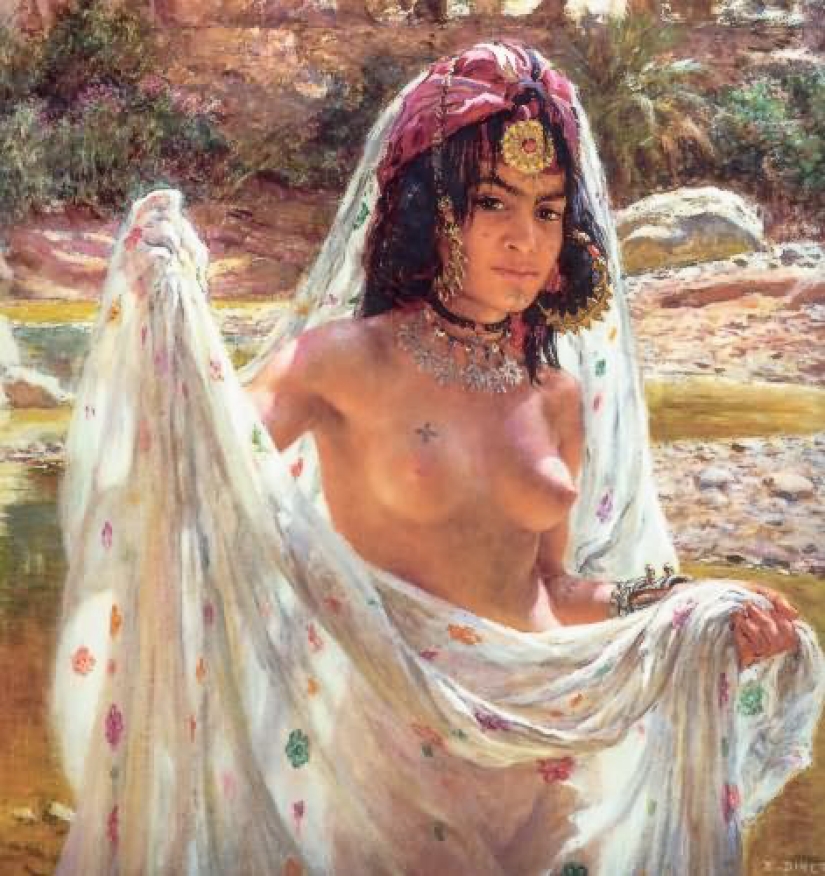
Nasruddin Dineh's paintings are highly valued all over the world. Famous collectors and major museums compete for the honor of owning them at auctions. The artist has many followers and it is believed that he radically changed the concept of orientalism, giving this direction of painting realism.
Keywords: Culture | Africa | Islam | Exhibition | Artist | North africa | Arabs | Algeria | 18+
Post News ArticleRecent articles

It's high time to admit that this whole hipster idea has gone too far. The concept has become so popular that even restaurants have ...

There is a perception that people only use 10% of their brain potential. But the heroes of our review, apparently, found a way to ...
Related articles

These artists love cats, but also masterfully draw them, often complementing funny and life signatures. Meet! --> Russian ...

What kind of wedding traditions do not happen! The Scots pour dirty slush over the bride, some peoples of India have decided to get ...

Is it possible to laying wood to name a form of art? Turns out you can. Because in the world there are such people, which gently ...

New Year's is a time to surprise and delight loved ones not only with gifts but also with a unique presentation of the holiday ...